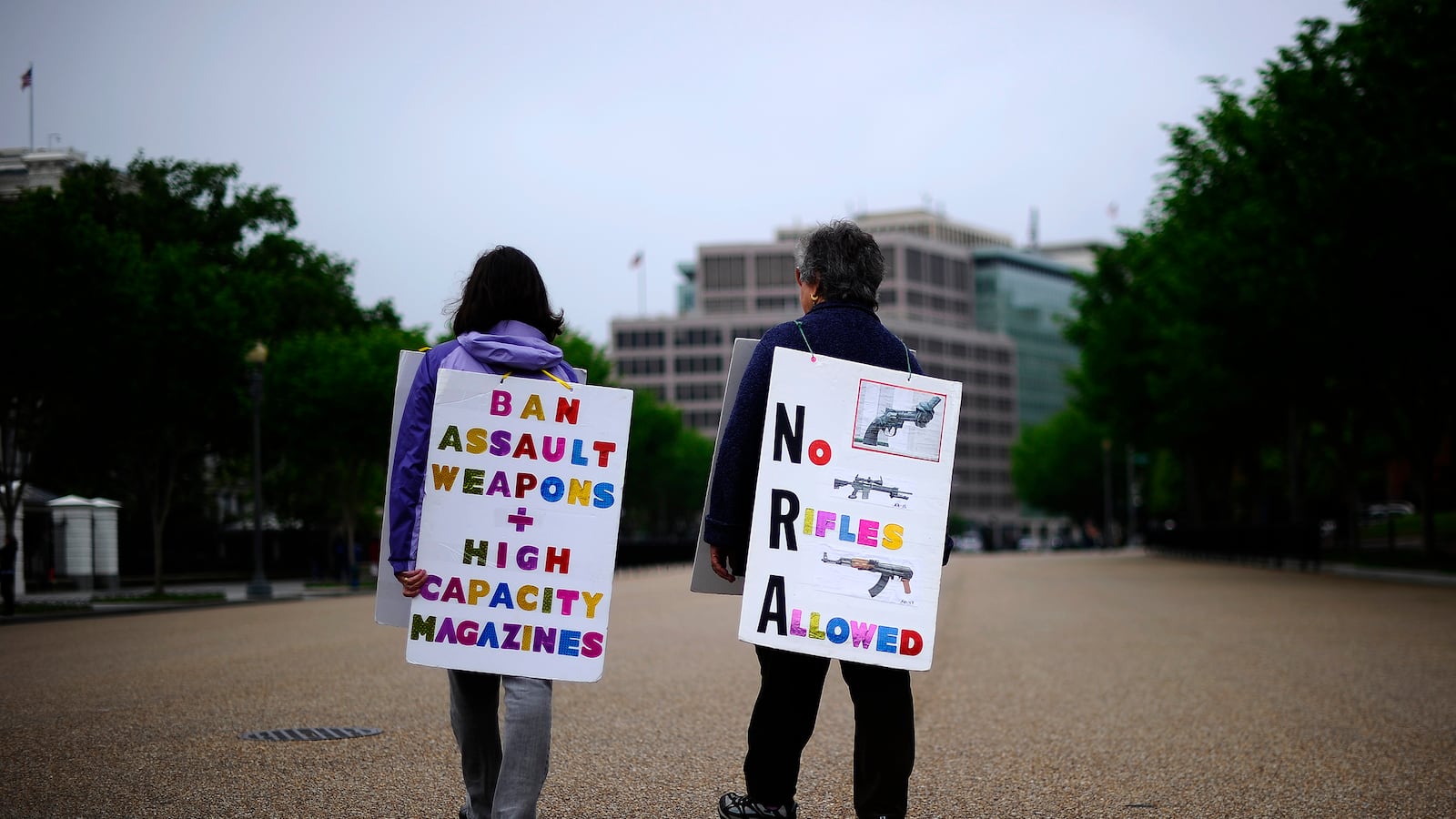When President Obama spoke after the shooting in Newtown, Connecticut, he called on lawmakers to honor the victims with new gun legislation: “If there is even one step we can take to save another child, or another parent, or another town, from the grief that has visited Tucson, and Aurora, and Oak Creek, and Newtown, and communities from Columbine to Blacksburg before that—then surely we have an obligation to try.”

Yesterday the president gave another speech honoring the victims of another mass shooting. But this time he didn’t make a call for new legislation. Instead, with a hint of resignation, he declared the obvious: unless something changes on the ground, new gun control is a pipe dream. “By now,” he said, “it should be clear that the change we need will not come from Washington, even when tragedy strikes Washington. Change will come the only way it has come, and that’s from the American people.”
This sounds like it should be true. If activists can mobilize the broad majority of pro-regulation Americans—and if they can exact a cost on politicians who oppose gun control—then they should have a shot at changing the political environment and forcing Washington to act. But how exactly do you organize ordinary people around an issue like gun control? It’s clear that tragedy isn’t enough. If it were, then the massacre at Sandy Hook would have generated a wave of activity. And while there was a strong push for universal background checks—an uncontroversial proposal with overwhelming public support—it crashed after resolute opposition from the National Rifle Association and its allies in the Republican Party. Which wasn’t a surprise.
If the NRA has a key advantage in the fight, it’s that it’s defending a tangible privilege—the ability to buy (almost) any gun, anywhere, with little in the way of interference. For those invested in this, even something as anodyne as a universal background check is likely to provoke outsize outrage and opposition. By contrast, while pro-regulation activists can point to the consequences of a free-flowing market in guns and assault weapons, they can’t avoid the fact that few people feel them. The large majority of Americans will never have to identify a loved one after a mass shooting, or hide during a shootout on a city street, or deal with the aftermath of a gun accident. Not may people can harbor intense feelings about an abstraction, which makes it hard to build a base of gun-control activists.
The NRA doesn’t have this problem. A sizable majority of those who own guns feel strongly about their ability to purchase more and use them. What’s more, these people are likely to form an important base of support for their elected representatives, who in turn, aren’t going to work against them. It’s why supporters of gun regulations have to choose their words carefully—to avoid alienating reachable members of the opposition—while opponents can say almost anything; to wit, just a few hours before President Obama gave his speech, on NBC’s Meet the Press, NRA executive vice president Wayne LaPierre said the Navy yard lacked “enough good guys with guns.” Otherwise, he argued, there wouldn’t have been a shooting.
In a world where there was a powerful movement for new gun regulations—and thus an avenue for the “change” of Obama’s speech—LaPierre would have never made that statement. As it stands, the NRA and its allies control the turf in the battle for gun policy, and it’s not clear if there’s anything that can budge the status quo.





